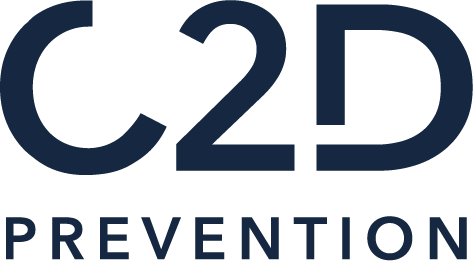WORKSHOP
Decision-making process
why does my brain make me make bad decisions?

In high-pressure professional environments where decisions often need to be made within seconds, stress becomes a significant risk factor. It can impair judgment, distort priority perception, and lead to impulsive or inappropriate choices.
The ” Decision-Making Process” workshop is designed to help your teams gain a deep understanding of the connection between emotional load and decision quality. Through practical tools and real-life simulations, participants will develop clarity, enhance their analytical capabilities in tense situations, and improve their daily decision-making effectiveness.
OBJECTIVE
CONTENT
- Case studies and testimonials
- Topics covered :effects of stress on clarity and decision-making, consequences and dangers of impaired decision processes
- Mental prevention tools to promote thoughtful and safe actions
- Discussions and role-playing exercises
FORMAT
- Coaching : interactive discussions, role-playing, case studies
MAKE PREVENTION A REFLEX!
REGISTER YOUR COMPANY NOW
and ensure a safer work environment for everyone!
Format & Target Audience
This workshop is available both in-person and online (facilitated by a certified VILT – Virtual Instructor-Led Training coach).
It is suitable for all employees and management levels.
Ideal group size: between 6 and 12 participants to encourage interaction and experience sharing.
Learning Objectives
- Identify the cognitive and behavioral effects of stress on decision-making.
- Understand why certain decisions become risky under pressure.
- Develop individual strategies to minimize stress-induced errors.
- Adopt mental prevention tools to act thoughtfully and safely.
- Enhance professional vigilance and adaptability in unforeseen situations.
Teaching Methodology
The workshop employs a dynamic and immersive approach:
- Alternating between theoretical input and active experimentation.
- Utilizing real-life cases from professional settings.
- Small group work to facilitate reflection.
- Led by an expert in performance under constraints and stress psychology.
Depending on the time available
Workshop Programme
1Risk Behaviors: Understanding Decision-Making Pitfalls
- Analyze real or simulated cases of risky decisions made impulsively.
- Examine thought patterns under pressure.
- Highlight cognitive biases exacerbated by stress.
Objective : Recognize the hidden mechanisms that impair clarity.
2The Role of Stress in Critical Decisions
Interactive exploration of stress effects:
- Narrowed perception field.
- Reduced working memory.
- Increased risk-taking or decision paralysis.
Objective: Comprehend the emotional impact on mental and behavioral processes.
3Stress Management Strategies in Decision-Making
Introduction to practical and customizable tools:
- Rapid centering techniques (breathing, grounding).
- Three-step method for clarifying thoughts.
- Priority sorting tools under pressure.
Objective : Build emotional regulation habits before making decisions.
4Practical Applications and Simulations
Engage in scenarios relevant to your professional context:
- Apply tools in simulated environments.
- Conduct group analyses of decisions made under constraints.
- Reinforce awareness of consequences.
Objective : Solidify best practices through direct experience.
5Individual Improvement Plan
Each participant will leave with:
- Insight into their decision-making patterns under stress.
- A roadmap to establish necessary benchmarks for secure decision-making.
- Simple, progressive commitments to integrate into their professional practice.
Why choose
this Workshop ?
To prevent workplace incidents and dysfunctions stemming from hasty or pressured decisions,
this workshop aims to:
Reduce human errors
linked to haste
Raise team
awareness of stress-related decision-making traps
Understand the underlying mechanisms
in decision processes
Highlight the peculiarities of our brain function
especially concerning inattentional errors
Foster a culture of strategic thinking
even in high-pressure environments
Enhance safety,
operational reliability, and intervention quality
Communication is the foundation of all human relationships, and since work is directly shaped by these relationships, learning to communicate assertively and transparently for oneself and for others is key to establishing a well-managed health and safety culture.
Recommended Complementary Workshops
- Distraction and Mental Overload: Identify and manage mental overload to prevent errors
- Neuroscience: Discover how the brain influences vigilance and the importance of safety practices
- Invisible Mental Load: Recognize and manage mental overload to prevent errors
- Stress Management: Learn practical techniques for daily stress management
Conclusion & Call to Action
By participating in the ” Decision-Making Process” workshop, your teams will cultivate a more stable,
thoughtful approach, enhancing safety for themselves and their work environment.
Contact us to incorporate this workshop into your prevention strategy
or to tailor its content to your specific professional needs.
